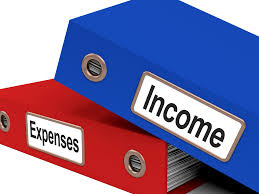Record keeping is an essential part of running a small business. In part one of my blog I will be looking at why you need to maintain records and what records you are required to retain. Part two, next week will look at the different ways to record you income and expenditure.
A legal requirement
As a self-employed individual you are responsible for filing a tax return. Maintaining the records and documents used to support the numbers in the return is a legal requirement. You may have to pay a penalty if you don’t keep records of if you don’t keep records for long enough.
How long do I have to retain my records for?
You need to retain invoices and receipts for 6 years from the end of the tax year.
Records you are required to keep
Your business records must include records of all your sales, purchases and expenses. Examples of the records that you are required to maintain include: till rolls, bank statements, paying-in slips, customer invoices, accounting records, purchase invoices, cheque book stubs, credit card statements and mileage records. If you are claiming capital allowances for certain assets you will need to maintain certain records to support the claim you make.
You can scan and store the records electronically or you can keep the originals. Write on the receipts how you paid (cash, debit or credit card etc) to make it easier for you to reconcile everything later on.
Above all, keep your records (paper or digital) well organised by year, quarter and month.
Financial management
The above requirements may seem quite onerous but on the plus side if you maintain accurate and up-to-date records you will save time (and money if you have an Accountant) completing your tax return. There is less likelihood of you making an error and consequently you will avoid HMRC penalties. Accurate and up-to-date records will allow you to budget for tax payments and manage your business’s cash-flow effectively.
Do get in touch if you have any questions on the above – 07596 516670 and don’t forget next week’s blog on ways to record your income and expenditure.
Karen Upcraft
The Winchester Bookkeeping Company

